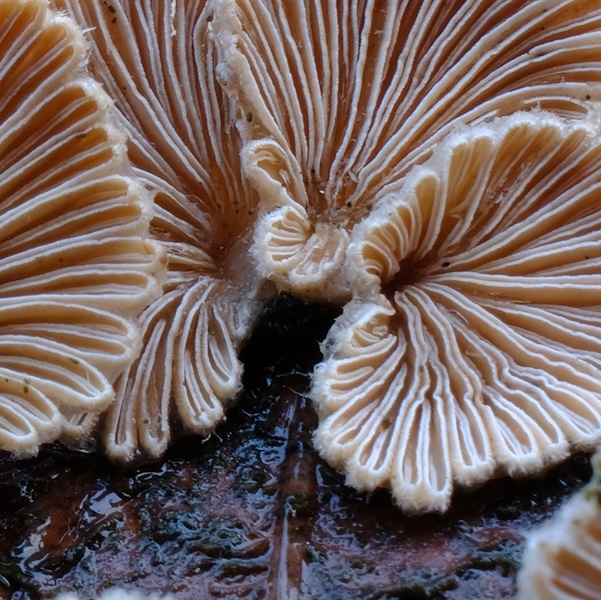In recent years, psychedelic therapy has emerged from the shadows of counterculture to become a promising frontier in mental health treatment. But amidst its growing popularity and compelling research, many are left wondering: What does a psychedelic therapist do? This article delves into the unique role these professionals play in guiding patients through transformative experiences, helping to heal deep-seated psychological conditions with the aid of psychoactive substances. From preparation to integration, we explore how these therapists facilitate profound personal growth and lasting change.
What is psychedelic therapy?
Psychedelic therapy refers to the supervised use of psychoactive substances such as psilocybin, LSD, and MDMA as part of a structured therapeutic program. Unlike traditional medications, these substances induce altered states of consciousness that can lead to significant insights and emotional release. The process typically involves three key stages: the preparatory sessions, the psychedelic experience itself, and subsequent integration sessions. During preparation, therapists work with clients to establish trust and set intentions for the experience ahead. The actual session is conducted in a controlled environment, where therapists support the client as they navigate their altered state. Finally, integration sessions help clients understand and apply the insights gained during their psychedelic journey to their everyday lives. This comprehensive approach aims not only to alleviate symptoms but also to foster a deeper understanding of oneself and one’s mental health challenges.

The role of a psychedelic therapist
The role of a psychedelic therapist is multifaceted, focusing primarily on creating a safe and supportive environment for clients undergoing psychedelic experiences. Here are the key responsibilities:
- Preparation: Before a psychedelic session, therapists engage deeply with clients to set clear intentions. This preparation is crucial for helping clients approach the experience with an open and focused mindset. Discussions may include potential psychological effects and personal goals for the session.
- Guidance during sessions: During the psychedelic experience, therapists provide a secure, calm setting where clients feel supported to explore their consciousness. The therapist remains present and attentive, ready to offer comfort and reassurance as they help navigate the emotional and psychological landscapes that arise.
- Integration: Perhaps the most critical role of a psychedelic therapist occurs post-session. Integration involves helping clients interpret the insights and emotions they encountered. Through follow-up sessions, therapists assist clients in applying these discoveries to improve their daily living and mental health, ensuring the benefits of the session are fully realized.
Case studies highlighting the effectiveness of psychedelic therapy
Psychedelic therapy’s potential becomes clearer through real-world applications. Below are case studies based on documented therapies:
Case study 1: MDMA-assisted therapy for PTSD
- Background: A recent Phase III clinical trial has shown that MDMA-assisted therapy can significantly help patients overcome PTSD. This study demonstrated that 71.2% of participants who underwent MDMA-assisted therapy no longer met the diagnostic criteria for PTSD by the end of the trial.
- Treatment process: The therapy included several sessions of MDMA-assisted treatment where the drug was used to facilitate emotional processing during psychotherapy.
- Outcomes: The successful reduction in PTSD symptoms was noted without any serious adverse effects, marking a significant step forward in treating such conditions.
- Reference: MDMA-assisted therapy for PTSD as reported in Nature Medicine, 2023.
Case study 2: treating depression with psilocybin
- Background: A comprehensive study by King’s College London and South London and Maudsley NHS Foundation Trust, part of a large multicentre trial led by COMPASS Pathways, has shown significant benefits of psilocybin therapy for individuals with treatment-resistant depression.
- Treatment Details: Participants received a 25 mg dose of psilocybin in a controlled, supportive environment alongside psychological support, resulting in a noticeable reduction in depression symptoms.
- Results: This trial found that psilocybin was effective at reducing symptoms in participants with persistent depression, with effects noted as sustained and substantial compared to lower doses or placebo.
Reference: For more details on this study, you can read the summary at King’s College London’s news release on their website.
Training and qualifications required to become a psychedelic therapist
To become a psychedelic therapist, you’ll need a combination of formal education, specialized training, and appropriate certification:
- Educational background: Typically, this involves obtaining a degree in psychology, counseling, or social work.
- Specialized training: Aspiring therapists must complete specific training on the therapeutic use of psychedelics. The Multidisciplinary Association for Psychedelic Studies (MAPS) offers an MDMA Therapy Training Program, which is comprehensive and includes various components like role-play, case studies, and experiential learning. More details can be found on the MAPS website.
- Certification and licensing: Beyond a degree, therapists need a license to practice, and while not always required, a certification in psychedelic therapy can enhance credibility. MAPS provides certifications for those who complete their training and meet specific criteria including clinical experience and consultation hours.

The future of psychedelic therapy
The outlook for psychedelic therapy is promising, with several advancements expected in the coming years:
- Research advancements: Continuous research is solidifying the position of psychedelic substances like MDMA and psilocybin as effective treatments for various mental health disorders. Organizations like MAPS are pivotal in this research, aiming to further understand and legitimize the use of these substances in therapy.
- Legal changes: There are ongoing changes in the legal landscape, such as state-level legalization efforts and the potential for broader FDA approvals. This could increase the accessibility of psychedelic therapies under regulated conditions.
- Integration into mainstream medicine: With growing acceptance and evidenced effectiveness, it’s likely that psychedelic therapy will become integrated with traditional mental health treatments, offering new hope for patients with chronic conditions.
- Training and accessibility: As the field grows, so does the need for trained therapists. Programs like the one offered by MAPS are preparing to train thousands of therapists to meet this need, ensuring that the benefits of psychedelic therapy can reach a wider audience.
For more detailed information about the training programs and the future landscape of psychedelic therapy, visiting educational resources such as MAPS Education can provide valuable insights.
For those interested in psilocybin-assisted therapy training, several reputable programs are available, each with unique focuses and requirements.
Fluence’s Certificate in Psilocybin-Assisted Therapy is one prominent option. This program is based on principles of Psychedelic Harm Reduction and Integration (PHRI) and teaches methods applicable across various settings and patient needs. The training includes both synchronous online learning and an in-person intensive training session, preparing participants for real-world application in therapeutic settings. More information on this program can be found at Fluence’s website here.
CIIS’s Certificate in Psychedelic-Assisted Therapies & Research also covers psilocybin among other psychedelics. This program is designed for professionals with substantial backgrounds in mental health, offering in-depth instruction both online and in-person, incorporating elements like Holotropic Breathwork into the curriculum. It aims to equip professionals to apply psychedelic therapies in clinical settings responsibly. Detailed information about this program is available here.
Both programs emphasize the importance of understanding the ethical, legal, and practical aspects of psychedelic therapies and require applicants to have a professional background in mental health or related fields. These programs are not only educational but also deeply immersive, ensuring that practitioners are well-prepared to support their patients effectively.
Conclusion
As the field of psychedelic therapy continues to evolve, the role of the psychedelic therapist becomes increasingly crucial. These professionals are not just facilitators of a medical treatment; they are guides on a profound journey of healing and self-discovery. The effectiveness of therapies involving substances like MDMA and psilocybin in treating serious mental health conditions such as PTSD and depression has begun to reshape our understanding of psychological well-being and therapeutic potential.
The training and qualifications required to become a psychedelic therapist ensure that practitioners are well-prepared to handle these powerful therapeutic tools responsibly. As research progresses and societal attitudes shift, we can expect psychedelic therapy to become more integrated into mainstream healthcare. This integration promises not only to broaden the accessibility of these treatments but also to deepen our comprehension of human consciousness and psychological health.
Further reading and resources
For those interested in exploring this fascinating field further, consider the following resources:
- Multidisciplinary Association for Psychedelic Studies (MAPS): A wealth of information on research, events, and training programs related to psychedelic therapy.
- Fluence: Provides detailed information and training programs specifically for psilocybin-assisted therapy.
- Johns Hopkins Psychedelic Research Unit: Known for groundbreaking studies in psychedelics, offering insights into their latest research and findings.
- Clinical trials: Keep an eye on ongoing or upcoming clinical trials at clinicaltrials.gov for a direct look at the current research landscape.
As psychedelic therapy continues to develop, staying informed through these resources can provide valuable insights into its application and effects, helping to demystify the processes and outcomes associated with this intriguing field of mental health. We hope that this article provided you with enough information, so that now you know what does a psychedelic therapist do.




